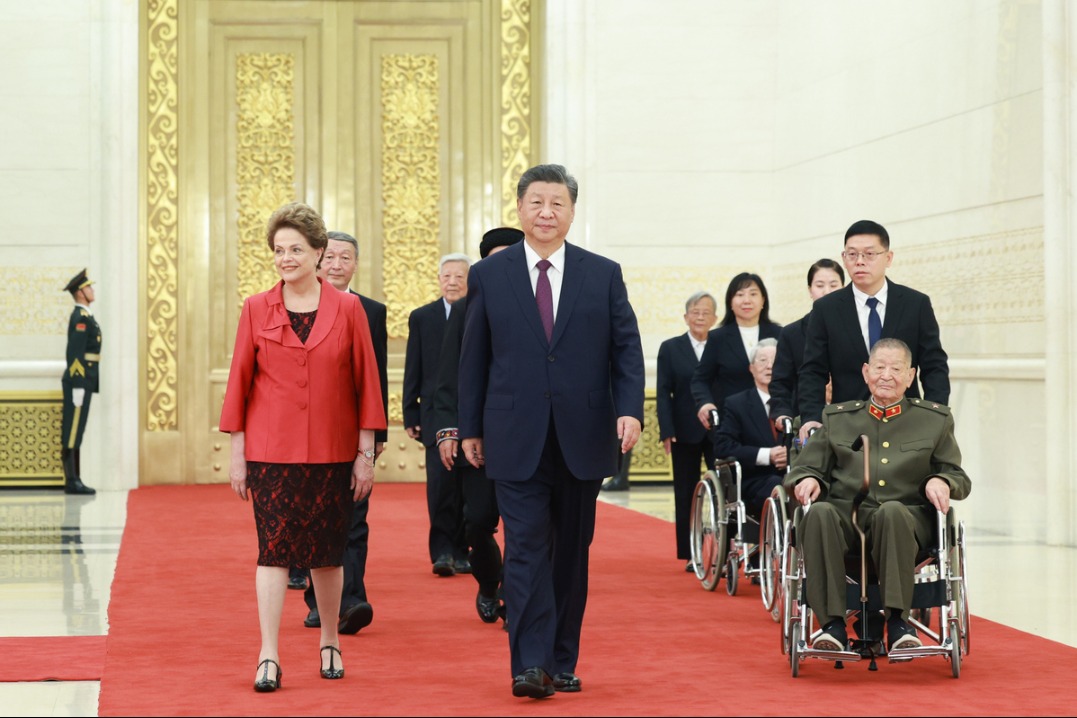Testing on public roads a leap forward for L3 autonomous vehicles in China
By CAO YINGYING | China Daily | Updated: 2024-06-17 08:59

China has taken another significant step toward the commercialization of autonomous driving, with the recent authorization granted to the first group of domestic automakers for testing Level 3 autonomous technology on public roads.
After conducting a preliminary review and selective assessment of proposals, the Ministry of Industry and Information Technology, along with other authorities, handpicked nine automakers from the pool of applicants.
Among the selected companies are renowned names like BYD and Nio, alongside State-owned automakers such as FAW, BAIC and SAIC.
This selection is noteworthy as it provides the automakers with a competitive edge in the race to commercialize autonomous driving. Industry experts said that this could pave the way for regulatory approval for the commercial use of autonomous vehicles.
The tests on public roads may lead to the mass-production and sale of autonomous vehicles, including those for robotaxi services, industry experts said.
Huawei and Xpeng, considered the leaders in intelligent driving, did not apply for the permission. Meanwhile, Reuters reported that the United States electric vehicle maker Tesla is looking to meet regulatory registration requirements for its Full Self-Driving software in China and to begin testing on Chinese public roads this year.
Unlike the widely adopted L2 driving-assisted systems, L3 autonomy enables drivers to surrender control, with manufacturers assuming liability for incidents, necessitating a foundational architecture and risk management capabilities. This marks a milestone in the development of autonomous driving.
Previously, around 10 auto companies, including Mercedes-Benz and BMW, had secured L3 testing licenses in China.
For the newly selected companies, the approval signifies a qualification to develop mass-produced autonomous driving products — a marked difference from merely obtaining an L3 test license, industry experts said.
To reinforce this progress, several cities have vehicle-road-cloud integration projects aimed at modernizing urban infrastructure.
Beijing announced in late May an investment of 9.94 billion yuan ($1.37 billion) on vehicle-road-cloud infrastructure construction, which will upgrade 6,050 road intersections within 2,324 square kilometers of the city.
Similarly, in early June, Fuzhou in Fujian province approved a demonstration construction project for intelligent networked vehicle-road-cloud integration.
More than 50 cities in China have introduced autonomous driving pilot demonstration policies, advocating local legislation and conducting pilot services for unmanned vehicles in key areas, such as airports and high-speed rail stations.
GAC Group, which will begin tests in Guangzhou in South China's Guangdong province, said it will launch L3 autonomous driving features represented by Traffic Jam Pilot on its models, mainly targeting specific congested scenarios on highways and urban expressways.
After activating the TJP feature, the vehicle can automatically stay in lane, maintain speed and keep its distance from other vehicles. During this process, users can take their hands off the steering wheel and focus on other tasks.
Analysts predict that autonomous technology will boost growth in the connected vehicle and road network sectors. By consolidating vehicle, road and cloud platforms through pilot applications, infrastructure construction will be expedited, thereby enhancing the adoption of intelligent connected vehicles and fostering high-quality industry growth.
























